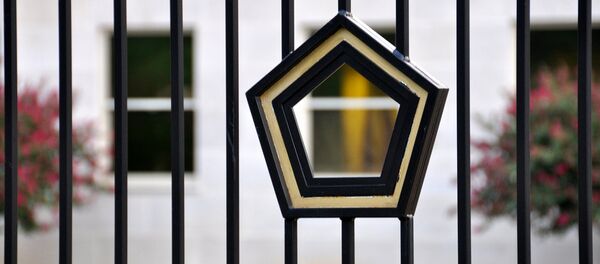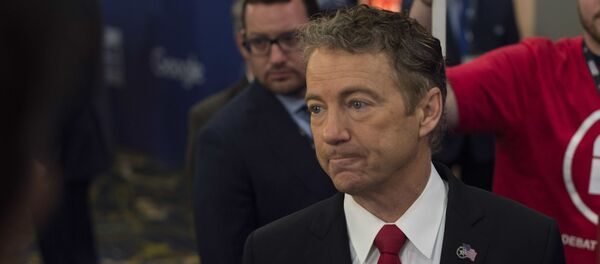Russia said in response that Washington was trying to shift the blame for its inability to separate the moderate opposition from terrorists, primarily Jabhat Fateh al-Sham (formerly known as al-Nusra Front).
Later that day, President Vladimir Putin submitted a draft law to the State Duma to suspend the US-Russian Plutonium Management and Disposition Agreement (PMDA), which was signed in 2000. It was reported that Moscow would resume its obligations under the agreement if the United States scaled down its military infrastructure and troops in NATO countries and revoked the Magnitsky Act and several other restrictions against Russia.
These events made some media outlets to say about a new cold war and compare the conflict in Syria to the Korea and Vietnam wars. However, Russian diplomats and experts told RIA Novosti that there were no reasons for these fears. It is true that there are serious contradictions between Russia and the United States, but they are unlikely to lead to an all-out war.
Moscow not dramatizing
Russia’s Permanent Representative to the UN Vitaly Churkin has urged not to exaggerate the Moscow-Washington contradictions.
"I hope there won’t be a new cold war. I believe that you are dramatizing the nature of our differences with the United States on the global scale. Considering the long time we have been working together on Syria, I hope that we can resume our cooperation," Churkin said.
Churkin believes that US-Russian dialogue on Syria will continue, at least between their UN ambassadors.
"I can’t rule this out. There were times when we joined in and produced positive results. I wouldn’t rule out this possibility now; in fact, I would be glad to do this," Churkin said.
Russian Foreign Minister Sergey Lavrov also believes that a new cold war is impossible. "I see no reason why we should expect a repeat of the Cold War," the minister said at a meeting with students and faculty at MGIMO University.
He said that unlike in the past, Russia and the West have no ideological differences now. According to Lavrov, Russia and Western states "have common principles implemented within the framework of the OSCE and the UN. These common principles presume a democratic development of the society," he said.
Not war, but growing tensions
Russian military and political experts agree that there are no reasons for a new cold war, let alone direct armed clashes.
"I don’t think the current situation can be described as a cold war. It is nice-sounding term, but it doesn’t reflect the true picture of the world, which is no longer bipolar but a complicated mix of different but closely intertwined interests," Andrei Baklitsky, an expert of the PIR Center, the leading independent organization in Russia for research in international relations, said.
"The current situation can be rather described as growing tensions in the US-Russian relations," he said.
Tebin believes that "there can be tragic accidents, but an armed clash between Russia and the US is absolutely out of the question."
Lieutenant General Yevgeny Buzhinsky, the former head of the International Treaties Department at the Russian Defense Ministry, shares this view.
"It is possible that after taking this decision [to stop the dialogue with Russia over Syria] the Americans could start bombing Assad, while we will continue to deliver strikes on the opposition. But I don’t think we’ll see more radical actions, let alone an armed clash between Russia and the US," Buzhinsky said.
Are there any other treaties hanging in the air?
Experts think that Russia or the United States won’t withdraw from any other treaties, and that the PMDA has been sacrificed to demonstrate the seriousness of Russia’s intentions.
"The PMDA has been suspended in a manner designed to demonstrate Russia’s attitude, and a supplement to the executive order includes a list of Russia’s complaints to the United States. This has been done to inform the United States, President Obama and the international community about Russia’s complaints. It should be remembered that the Obama Administration will soon leave the White House, and that therefore this demonstration is designed for the next US President," Andrei Baklitsky said.
"There’s no point in making a show of suspending any other treaties, because the signal has been sent," he added.
"I believe we carefully scrutinized treaties to decide which can be sacrificed and which cannot be touched. As I said, I don’t think any other agreements will be suspended, because they were signed with due regard for both Russian and US interests, and because we are interested in their implementation. Unlike the START [Strategic Arms Reduction Treaty] treaty, the PMDA was not implemented anyway, that is why it was used for this maneuver," Baklitsky said.
Common interests
Apart from treaties and agreements, Russia and the United States also have common interests.
"They honor the START and the INF Treaty [Intermediate-Range Nuclear Forces Treaty] and work together on non-proliferation issues, including the Iranian deal, and there are several other areas which, I hope, won’t be affected," Alexei Arbatov, the head of the Center for International Security at the Russian Academy of Sciences’ Institute of World Economy and International Relations, said.
At this point, Moscow should focus on resuming the US-Russian cooperation in Syria. "We should think about how to avoid clashes in Syria, about resumption of talks and cooperation within the next few weeks," Arbatov said.
Washington has also indicated that the door on cooperation with Russia has not been completely shut.
"In areas where we have commonalities, areas where we can work with Russia, we continue to do so. We’ve had conversations – the Iran deal is a perfect example on that – DPRK, issues like that. Where we can work with Russia to benefit the international community and also to increase our own national security, though, we will continue to do so" Ms. Trudeau said on October 3.





